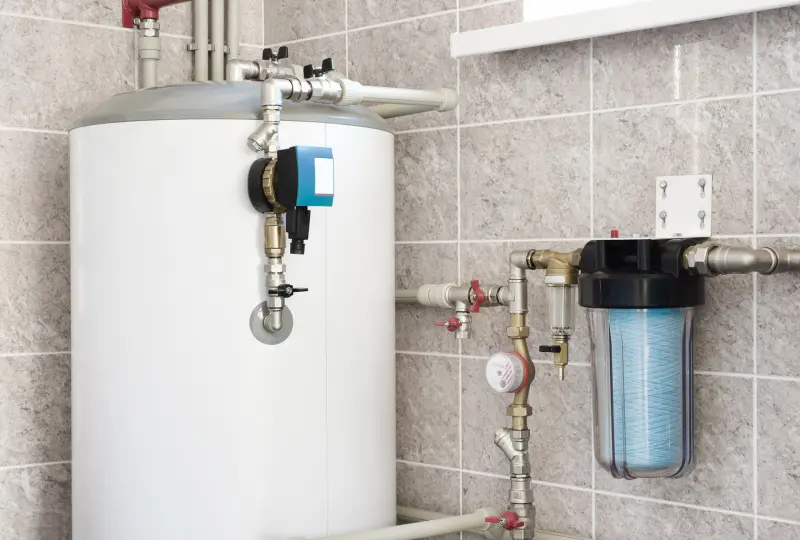One of the worst mistakes you can make with a water heater—or any major appliance, for that matter—is ignoring the warning signs that something is wrong and failing to have repairs done. Small problems might be easy to repair.
Allowing small problems to get worse and worse can lead to very big problems and even a total breakdown of your water heater. But it’s understandable that you might not be certain whether repairs are actually necessary. To help you spot the early warning signs that you need to call a plumber for water heater repair, we’ve got a handy list of clues for you.
Low Flow
Does your water pressure seem to have dropped off? Is your shower just a warm trickle? This is usually caused by mineral scaling in your water heater, which can narrow the space that the hot water passes through.
Mineral scaling can happen eventually with most water, but happens quite quickly with hard water. Don’t worry, just call for water heater repair in Albuquerque, NM. Your hot water system can be flushed with a safe solution that dissolves those minerals, leaving everything wide open for your water to flow freely again.
Discolored or Foul-Smelling Water
If all your water has these problems, it’s likely a water supply issue. But if it’s just your hot water, that’s caused by your water heater. There is a component of your water heater called the anode rod which helps to make the environment inside the water heater hostile to bacteria and resistant to rust. If that’s broken, you might experience rusty discoloration or smelly bacterial contamination. It’s time to call the plumber.
Strange Noises
Gurgling, banging, popping, sizzling, or any other surprising sounds are definite indicators that repairs are necessary. Various sounds can indicate a wide variety of issues, from a buildup of mineral scaling to a water flow problem or condensation issue. A professional can determine exactly what the cause is so that your water heater can get back to doing its job without all that alarming noise.
Leaks
Never let this problem go untreated. Not only does it indicate that something is wrong with the water heater, but if you don’t address it, you can end up with major water damage to your home. It’s far easier to fix a water heater—or even get a new one—than it is to replace sheetrock, wooden beams, and joists and undertake the major mold mitigation that can be required when water damage occurs.
Fluctuating Temperatures
If you keep adjusting the hydrostat (which is what a thermostat is called when it adjusts water temperature) or if you are never sure how hot your water will or won’t be when you turn it on, you need water heater repair. This might be the result of a failing heating element, which leaves the water heater struggling to get all the water to the right temperature. Or, again, it can happen when there’s a lot of buildup of mineral scaling.
To keep your water heater problems small, be sure to catch them early.
Contact Roadrunner Air Conditioning, Heating & Plumbing today to schedule water heater repair.








